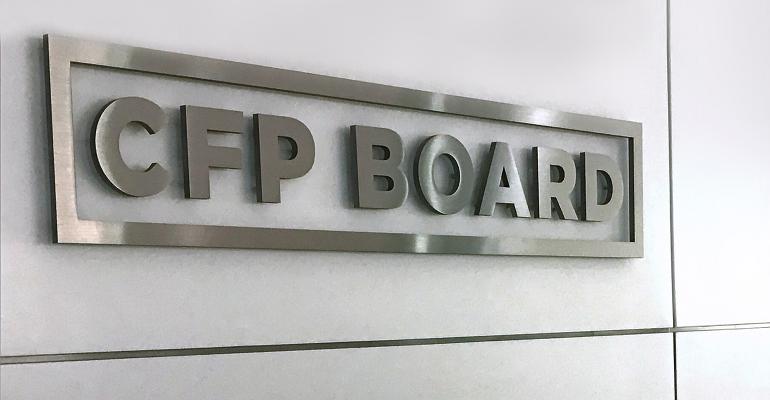The CFP Board amended the level of sanctions a CFP can face if they fail to “timely report” information about potential misconduct, the Board announced Thursday.
The announcement follows a February statement that the Board would review its sanction guidelines, which offer standards to follow when issuing sanctions for planners accused of violating the Code of Ethics and Standards of Conduct.
The Board also opened a public comment period on proposed revisions that would create an appeals commission for adjudicating appeal hearings. While such hearings are currently adjudicated by the Board's Code and Standards Enforcement Committee, the new commission would consist of a five-member panel who do not serve on the Board, including former Board members, public members, individuals with a regulatory background and current CFP professionals.
“This proposal is intended to help ensure that appeals continue to be adjudicated fairly,” CFP Board CEO Kevin Keller said. “It also allows our Board of Directors to remain focused on organizational strategy, policy making and monitoring of our enforcement processes.”
In the case of the revised sanctions, a CFP professional could be served with a public censure for failing to report within 30 days “certain categories of information” that could indicate misconduct or for failing to provide a full and accurate ethics declaration.
Those “certain categories” include (but aren’t limited to) being charged with or convicted of a felony or relevant misdemeanor, being named as a subject in a regulatory investigation or action or becoming aware of an arbitration award, civil judgment or settlement that sprang from a civil action if the professional’s conduct “was mentioned adversely” (though settlements under $15,000 would not qualify). The full list is available in the Board’s revised sanction guidelines.
“Timely and accurate self-reporting to CFP Board helps us maintain effective enforcement processes that are fair to CFP professionals whose conduct is being evaluated and credible to the public,” Keller said.
The Board also amended two instances that could mitigate a sanction’s severity, including when there were circumstances of a “similarly catastrophic nature to an emergency or medical issue” that led to a delay, or if a CFP professional submitted the information shortly after the 30-day deadline but before the Board contacted them about the lapse.
After announcing it would review its sanction guidelines in February, the Board released its revisions in July, garnering criticism; some argued that the proposed revisions went too far, while others stressed they had not gone far enough. XY Planning Network founder Michael Kitces noted at the time that the Board had a “delicate needle to thread,” saying it risked creating regulations that might dissuade advisors from pursuing the CFP designation altogether.
The public comment period on the newly proposed appeals commission will run until Dec. 14, and CFP professionals will have some time to prepare for the sanction revisions. The new guidelines will take effect on submitting accurate ethics declarations starting Jan. 1, but CFP professionals have until the beginning of 2024 before the Board’s new sanction guidelines on failing to timely report information take effect.





